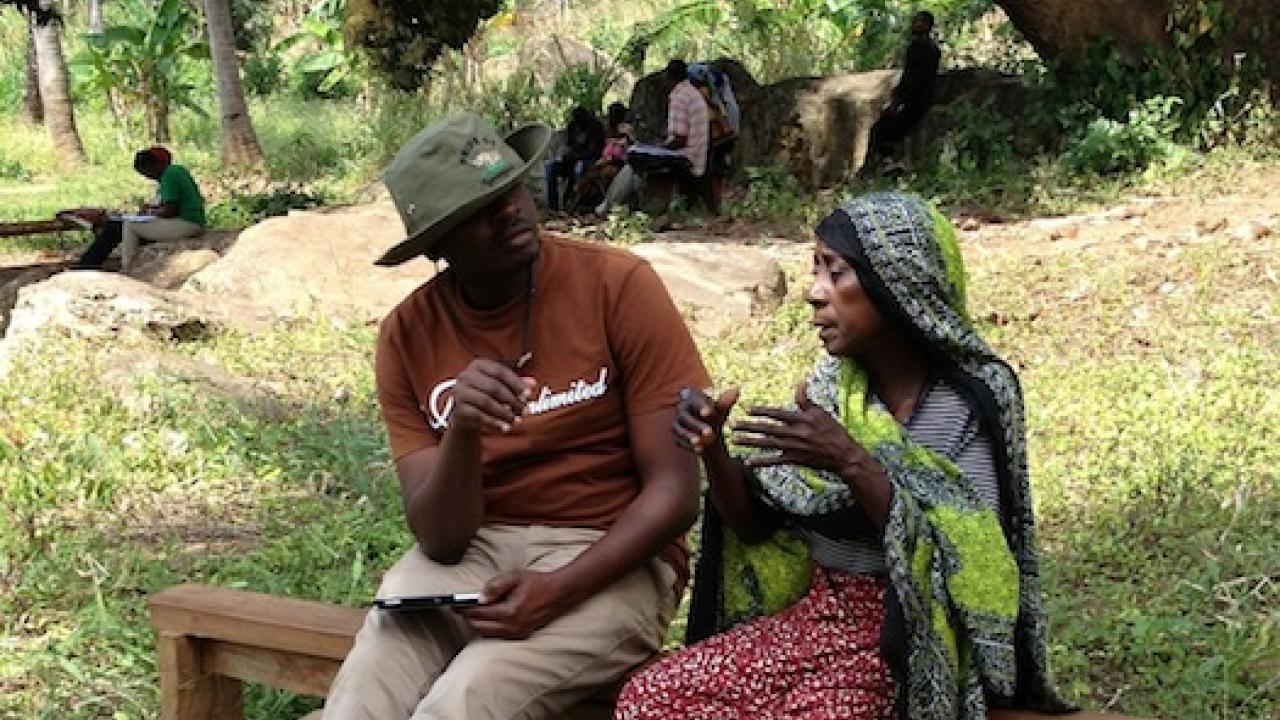
Poor soil quality and the associated low crop productivity is linked to the pervasive rates of poverty and malnutrition ensnaring much of Africa. One challenge is that farmers, in particular small-scale farmers, do not know the status of their soils. Despite considerable soil variation across farmers and fields, governments generally set a single fertilizer application recommendation for a region or country. While uniform recommendations can improve yields up to a point, obtaining higher yields will require a targeted approach that makes efficient use of environmental and economic resources.
Project Overview
Lead PI: Cheryl Palm, Columbia University
Partners: University of Maryland, University of Illinois at Urbana-Champaign, Sokoine University of Agriculture
Timeline: 2014-2017
Funding: $768,037
Region: Morogoro, Tanzania
Key Innovation: On-site soil diagnostic kit (SoilDoc)
Commodity: Various
In Sub-Saharan Africa, laboratories that conduct soil tests and make recommendations are lacking, and the costs are beyond the reach of most farmers in the region. Without such soils information it is not possible to make recommendations specific to farmers’ soils and growing conditions. Given that soil quality has been shown to have an inverse relationship with farmer wealth, site-specific diagnoses and recommendations may be of particular use to poorer farmers.
Project Summary
Research supported by the Feed the Future Innovation Lab for Assets and Market Access will test whether better information about soil quality helps farmers apply inputs more effectively and increase yields. The project will employ a randomized control trial to evaluate how this information impacts production input decisions, yields and the welfare of farming households in the Morogoro district of Tanzania.
The research agenda includes four primary objectives:
- The first is to determine how plot-specific soil information affects farmers’ agricultural input decisions and yields, relative to information received via traditional extension services.
- The second is to closely examine the link between soil quality, poverty and input decisions. SoilDoc—a portable, on-farm soil testing kit that provides cost-effective, farmer-specific soil and crop management recommendations— presents a unique opportunity to empirically test these relationships.
- The third is to determine whether farmer input decisions are constrained by access to cash and credit.
- Because SoilDoc has already captured the interest of several Ministries of Agriculture in Africa, the fourth objective is to disseminate the results to other interested governments, practitioners and key stakeholders where discussions on the roll-out of SoilDoc have already begun.
Anticipated Impacts
This study explores why farmers may not use information about soil quality to enhance production investments. The results will show how SoilDoc helps farmers in making soil management decisions, which farmers respond to the new information and to what degree, when the information is most beneficial, and links between adoption, yields and poverty. These results will help to design large-scale efforts to improve farming productivity through information about soil quality.
